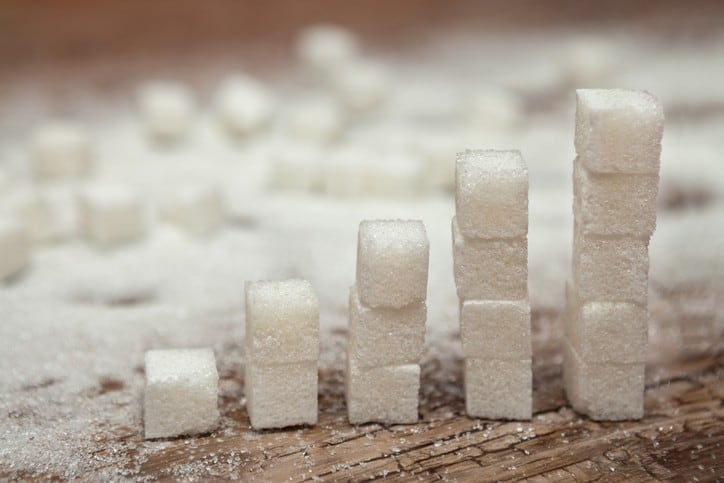It comes after food safety experts called on the UK Government to ban the use of aspartame -- the world’s most widely used artificial sweetener -- in the New Year on concerns uncovered around an EU decision to approve its unrestricted consumption.
Professor Erik Millstone and Dr Elisabeth Dawson from the Science Policy Research Unit at the University of Sussex Business School claimed new research detailed how European regulators approved aspartame despite accepting 21 studies that indicated it could have an adverse effect on consumers.
In 2013, the European Food Safety Authority (EFSA) published an assessment of the risks of aspartame, more commonly known as Nutrasweet, and cleared it for consumption within the EU.
The scientists claimed that the EFSA took that decision despite accepting that 16 of the 21 studies indicated that aspartame could cause adverse effects at modest dose levels. According to pair, the admission emerged in a response published by two EFSA scientists.
They called on the EFSA to explain why it failed to ban aspartame or tightly restrict its use in food and drink products in light of the evidence it considered.
The academics’ challenge to the EFSA has just been published in a paper in Archives of Public Health, available here.
Prof Millstone said: “The more we learn about the EFSA decision approving aspartame, the more unanswered questions emerge.
“It is incumbent on EFSA in the interests of transparency and protecting public health to provide a detailed breakdown of the studies, and references to the papers, which underpin the new information we have recently learned about their decision in 2013.
“If the EFSA accepted this substantial number of studies indicating possible risk of harm, why did the panel not lower its Acceptable Daily Intake below 40 mgs/kg of body weight?”
Since 1977, scientists have warned of the risks of brain lesions, cancer and neurological disorders from consuming aspartame, which is found in thousands of products around the world including diet soft drinks.
The EFSA, however, insisted the current levels of recommended daily intake of aspartame adequately protect consumers.
An EFSA spokesperson told FoodNavigator: “In the framework of the ongoing revaluation of all sweeteners on the market authorised prior to 20 January 2009, EFSA revaluated the safety of aspartame in 2013. Our experts concluded that it does not pose a safety concern at current levels of exposure. The acceptable daily intake (ADI) of 40mg/kg bw/day is considered protective for the general population and consumer exposure to aspartame is estimated to be well below this ADI.”
In the UK, Prof Millstone and Dr Dawson said the Government should use the country’s split from the EU as an opportunity to ban the sweetener.
Millstone said: “Government ministers have said on occasions that once the UK has fully departed from the EU, we will be able to raise UK food standards. The banning of aspartame would be a significant opportunity for ministers to show they are serious about those promises.”
But the Food Standards Agency told FoodNavigator the list of food additives authorised for use in the UK, including aspartame, will not change at the end of the Transition Period. Citing FSA research from 2015, it says only people who are diagnosed at birth with phenylketonuria need to avoid foods containing certain sweeteners such as aspartame and aspartame-acesulfame salt and any foods containing these additives should be labelled with the statement: ‘contains a source of phenylalanine’.
Adam Hardgrave, Food Additives Lead at the FSA, told us: “As with all other food additives, sweeteners must undergo a robust safety evaluation before they are authorised for use in food.
“The FSA commissioned research to investigate claims of sensitivity to aspartame but found that there were no short-term effects from its consumption. Aspartame was also re-evaluated by the EFSA in 2013 and was found to be safe for the general population at current permitted levels. Maximum permitted levels of use are set and all food additives must be clearly indicated in an ingredients list so consumers wishing to avoid them may do so.”
The British Nutrition Foundation, which aims to provide impartial, evidence-based information on food and nutrition, said that ‘rigorous safety evaluation’ by the European Food Safety Authority ensured the maximum permitted levels of that can be added to foods and drinks for each sweetener were adequate in minimising any risk of the consumer exceeding the ADI.
In the case of aspartame, it said an adult would have to consume 14 cans of a sugar-free drink every day before reaching the ADI, assuming the low-calorie sweetener was used in the drink at the maximum permitted level. “In practice most drinks use aspartame in combination with other sweeteners so that the level is considerably lower than the maximum permitted levels,” it added.
The International Sweeteners Association went further. It made the point that low/no calorie sweeteners, including aspartame, are used in foods and beverages to provide people with a wide choice of sweet-tasting options with low or no calories, and thus can be a useful tool, when used in place of sugar and as part of a balanced diet, in helping reduce overall sugar and calorie intake, as well as in managing blood glucose levels.
Furthermore, it noted that low/no calorie sweeteners are not fermentable by oral bacteria, which means that they do not contribute to tooth demineralisation, which is one of the reasons for tooth decay.
An ISA spokesperson told FoodNavigator: “At a time when obesity and non-communicable diseases including diabetes and dental diseases remain major global health challenges, and in light of current public health recommendations to reduce overall sugar intake, low/no calorie sweeteners can be helpful in creating healthier food environments.”
It added that the EFSA’s 2013 scientific opinion on aspartame represented “the most comprehensive assessment of the aspartame safety database that has ever been undertaken and the EFSA conclusions are consistent with the opinion of regulatory authorities around the world that aspartame is safe”.




